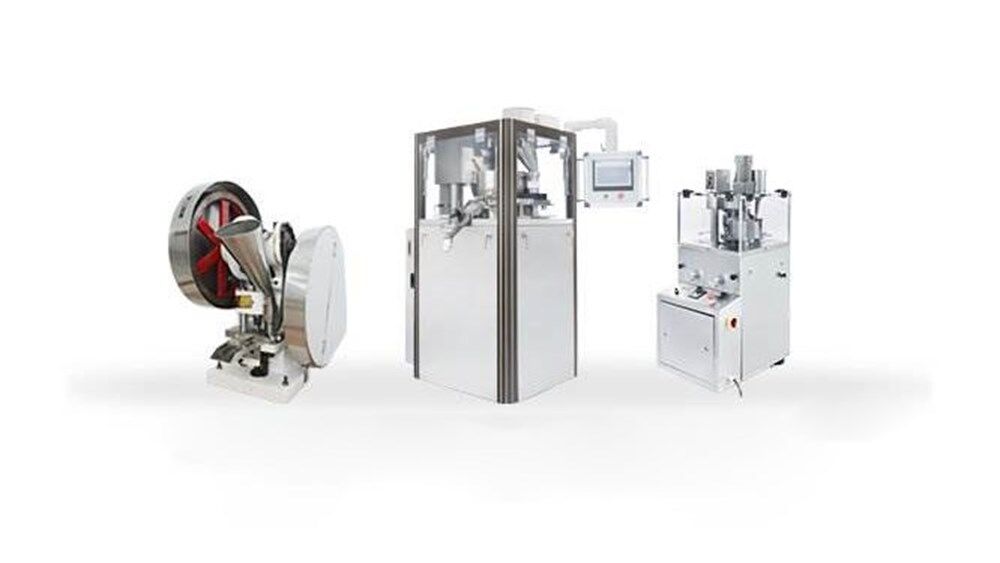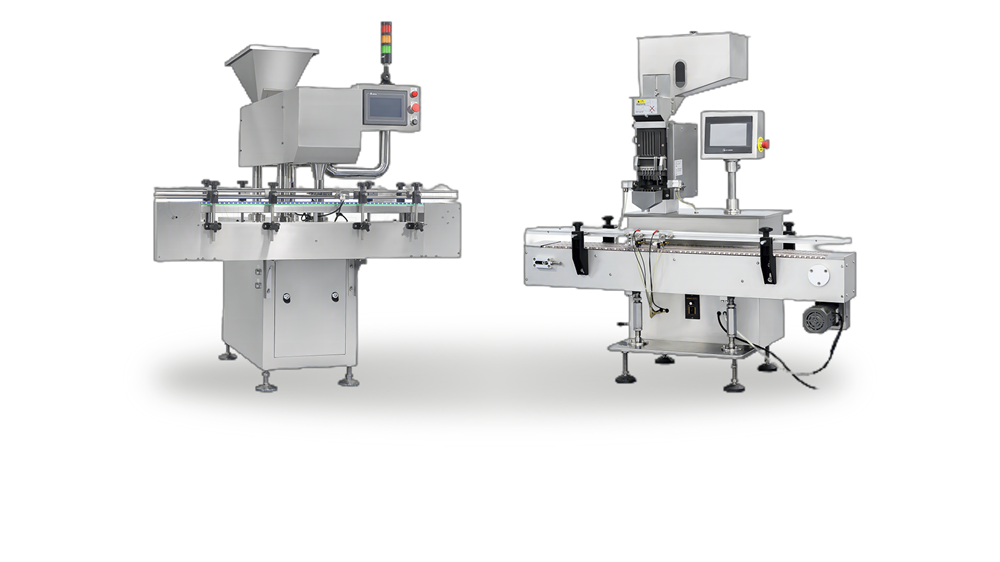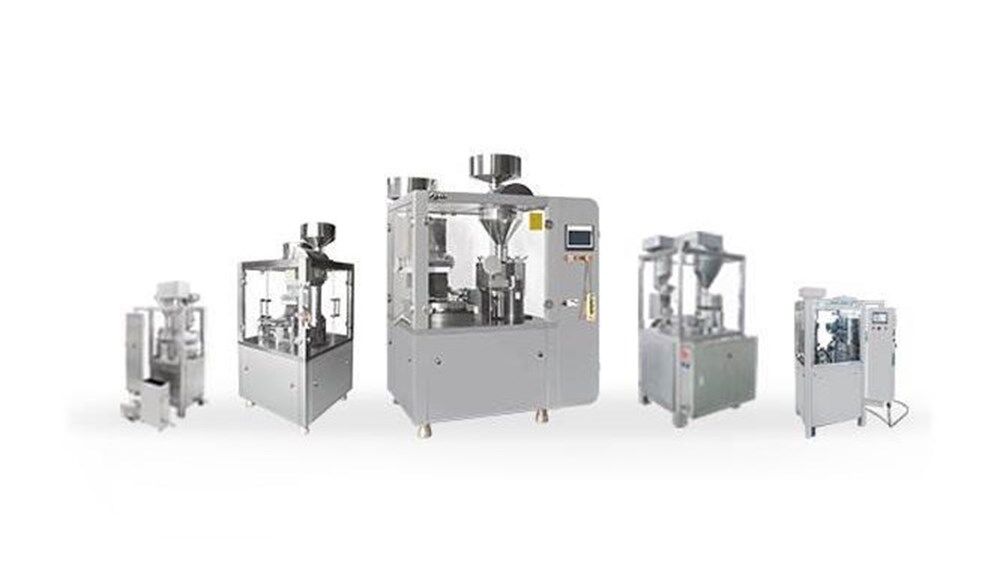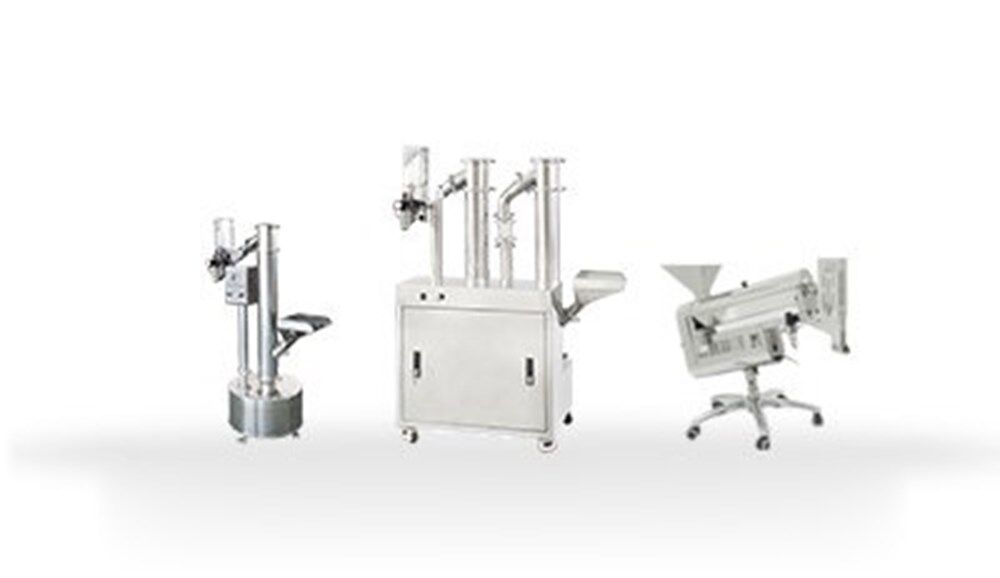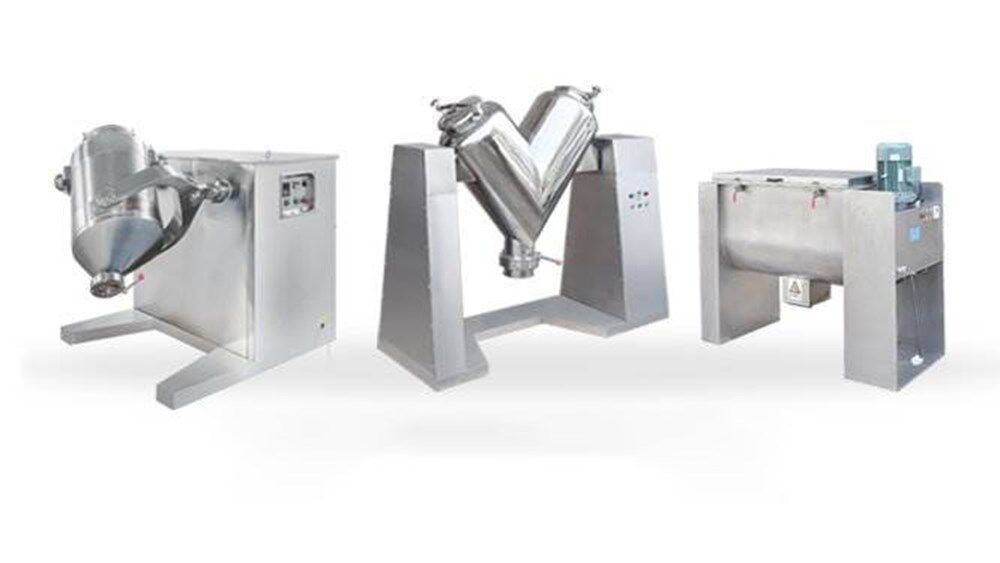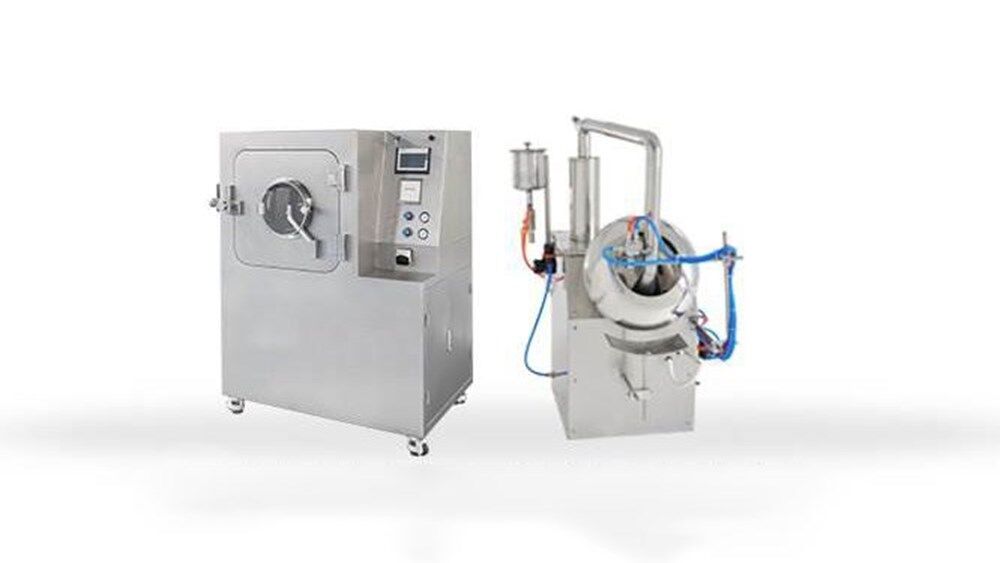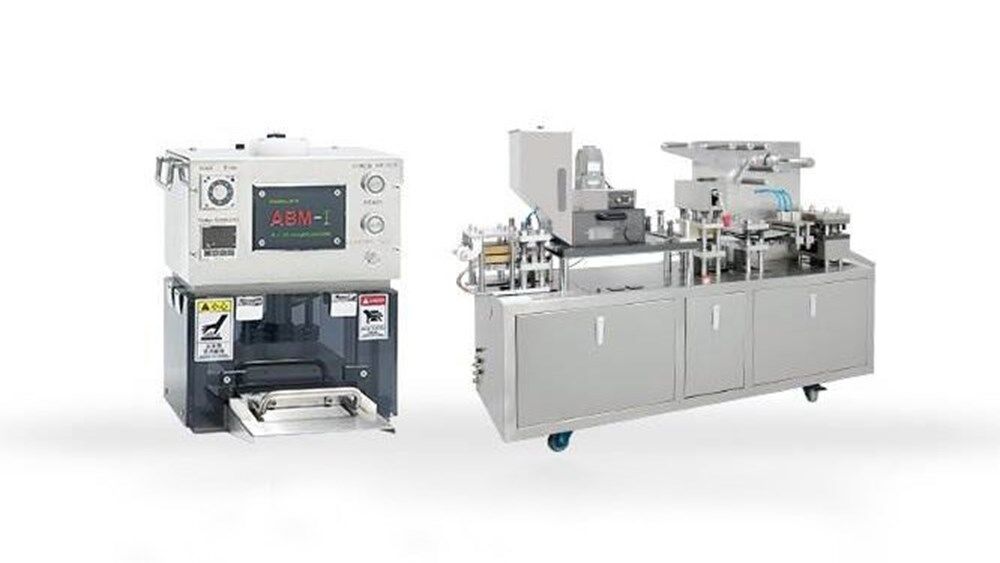Pharma Granulators Explained: Meaning and 5 Common Types
In material processing, granulation is a vital step. It improves the material properties to make it more suitable for further processing. There are various types of granulators in the market. You may struggle to pick the best one. This article may give you some reference for a wiser choice.
What is a Granulator?
A granulator is a machine that turns raw materials like powders into uniform granules. It is used to make consistent size, shape, and density of particles. The main purpose of granulation is to improve the physical properties of materials. For example, some materials have poor flowability and can't be used directly.
Additionally, granulators help minimize dust generation, enhancing handling safety. Due to these unique advantages, granulators are widely used across various industries. They include pharmaceuticals, food processing, and industrial and chemical sectors.
2 Types of Granulation Techniques
It mainly includes wet granulation and dry granulation. These granulation techniques have their own advantages and disadvantages. The main difference between them is the use of binding agents.
Wet granulation requires liquid binders, usually polymers or sugars. These help particles stick together and form cohesive granules. It's best for materials that don't flow or compress well. If you need controlled-release medicines, wet granulation is also a good option. The granules it produces can be compressed easily, and flow smoothly. Most importantly, they are uniform in size. This makes them ideal for making tablets and capsules.
Dry granulation, unlike wet granulation, doesn't require binding agents. It directly compresses a powder blend into a ribbon or sheet. Then, this is broken into granules. This process involves extra equipment like roller compactors and crushers. Compared to wet granulation, it needs more additional processing steps. Dry granulation, on the other hand, is better for materials with low sensitive to moisture.
5 Common Types of Pharmaceutical Granulators
Oscillating Granulators
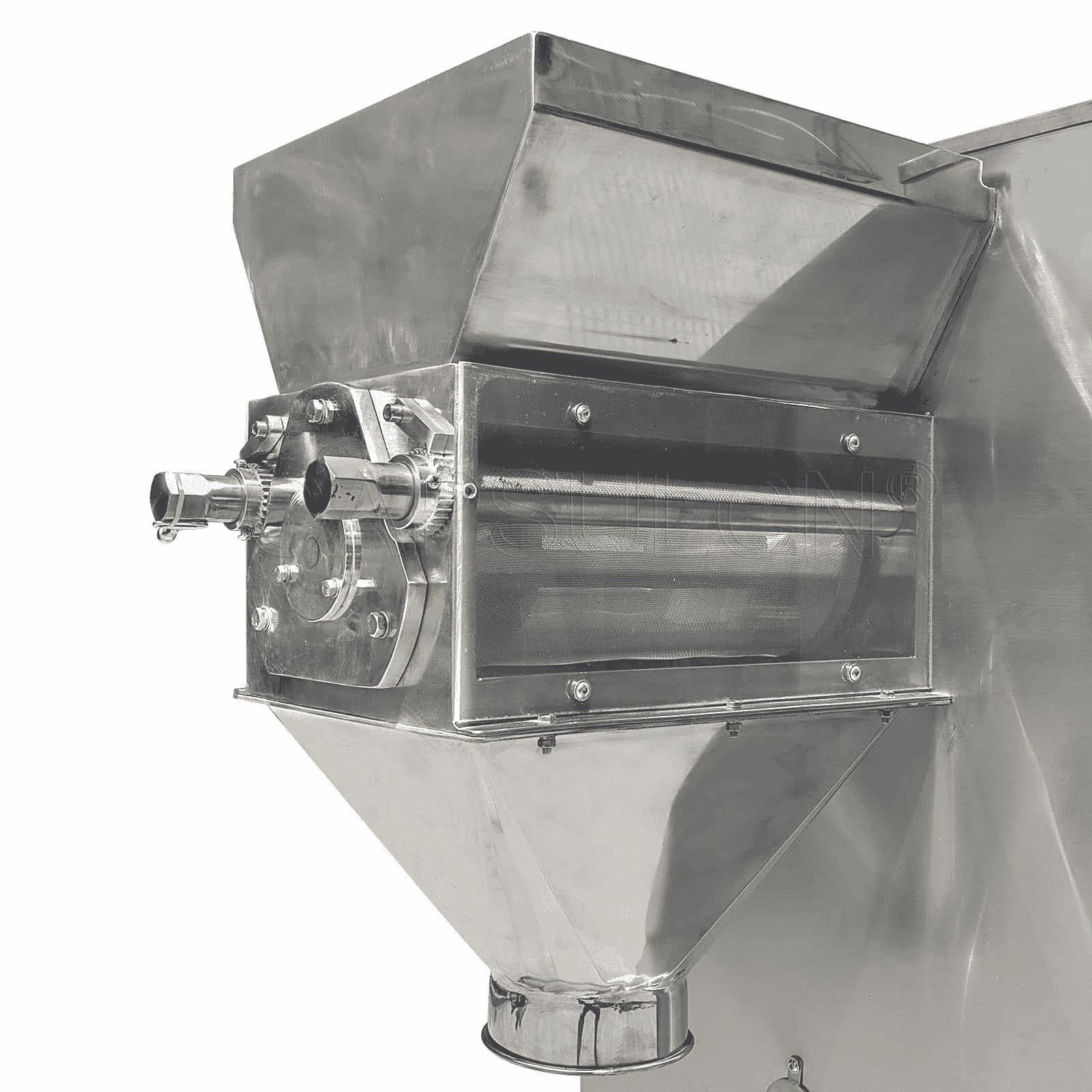
This machine has an oscillating rotor that moves back and forth. Powder need to pass through a screen or mesh that swings. It then creates particles of the desired size. The size of the particles depends on the size of the holes in the screen. You can customize the screen hole size to fit your needs. Also, the rotating speed can be adjusted based on your material properties. After that, the granulated material are collected at the machine's output.
Oscillating granulators are suitable for processing various materials. They include heat-sensitive and moisture-sensitive powders, food additives, etc. This machine is designed for easy disassembly. And it is very easy to clean and maintain.
Roller Compactor Granulator
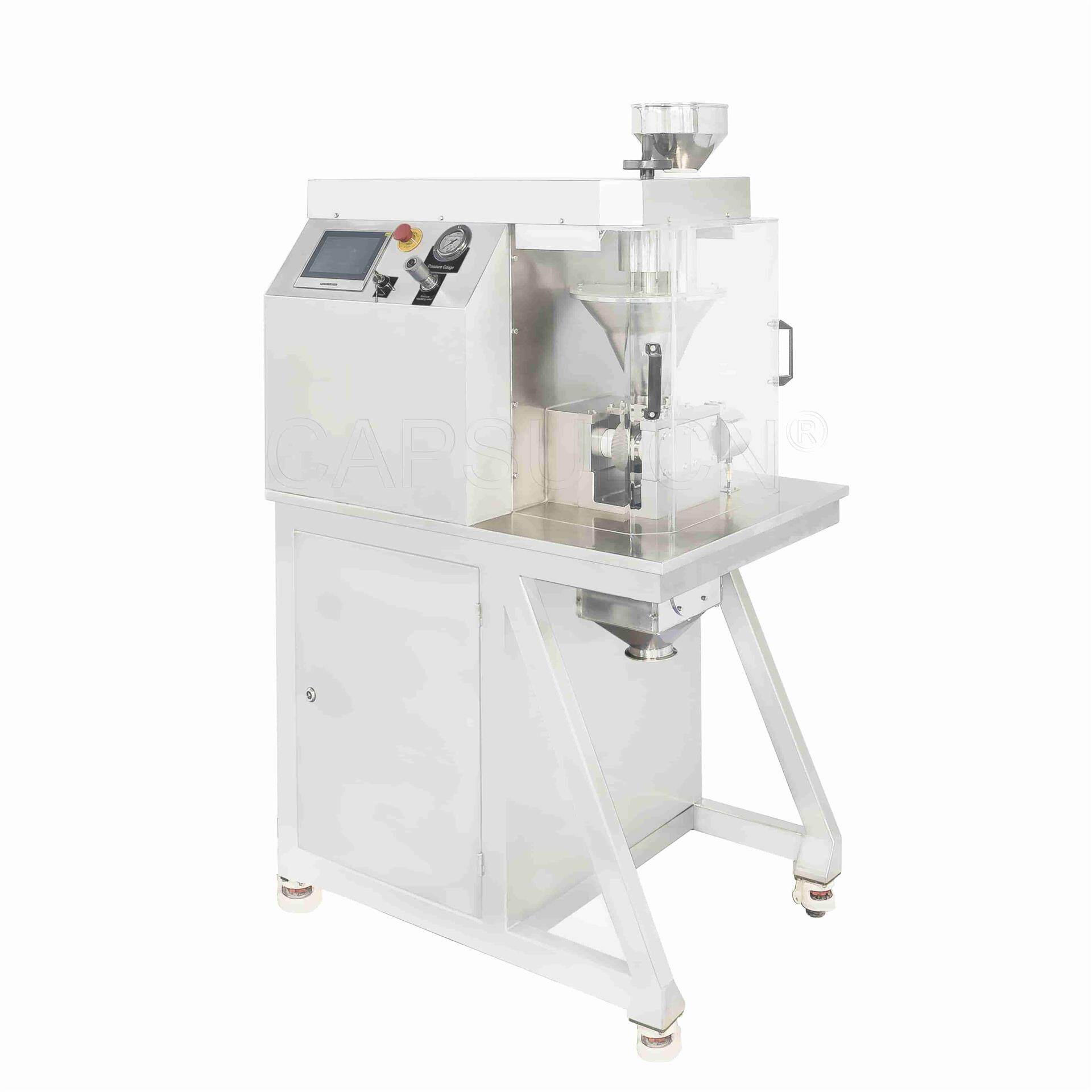
This machine uses dry granulation technique, so it is also called dry granulator. It is designed to convert powders into granules without using liquids. This machine is equipped with two counter-rotating rolls. When the powder is poured, it is compressed between two to form a dense sheet or ribbon. This compacted sheet is subsequently broken down into uniform granules through a milling mechanism. At last, the granules pass through screen for consistent particle size.
If you want to use roller compactor granulators, it is more suitable for materials that are moisture-sensitive and heat-sensitive. In pharma industry, dry granulator are always used for tablet and capsule formulations. Besides, it is also popular in the food industry for granulating additives and spices, and in agriculture for producing granulated fertilizers and pesticides.
The machine above is CZK-G10, one of most popular granulators in iPharMachine. Here is a video about how it works.
High Shear Granulator
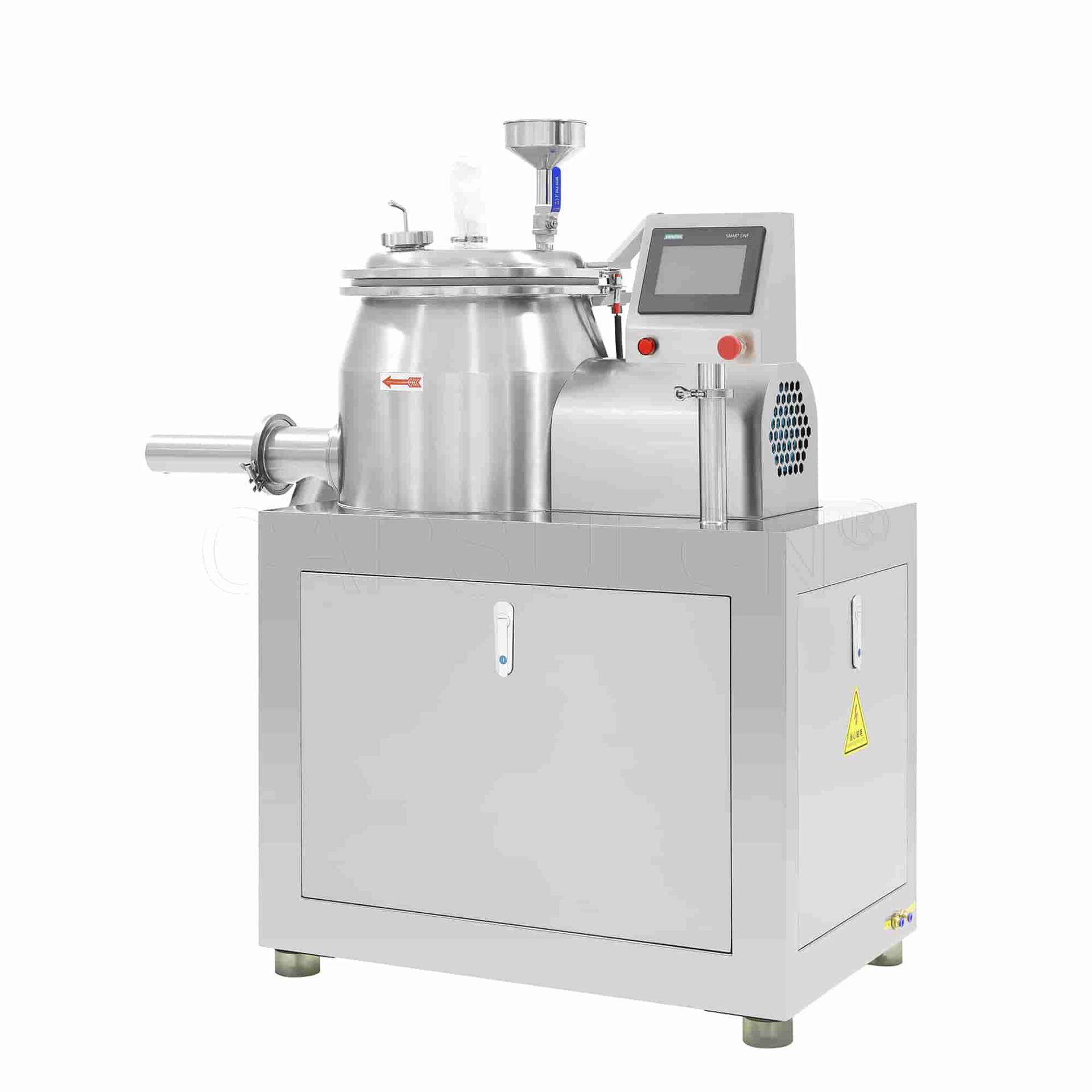
This machine is also known as a high-speed granulator. It works by mixing powders at high speed to form granules. This type is famous for its high efficiency. The machine is equipped with a high-speed impeller. It can generate intense mechanical forces, ensuring thorough mixing and granule formation. And the granules produced feature consistent size and density.
In addition, the granulator enhances flow properties, making handling and processing easier. It has multiple functions. This allows the machine to handle various materials and formulations. So it is very suitable for large-scale production.
The picture you see is CHL-50. Here is video to show you how it works.
Vibrating Granulator
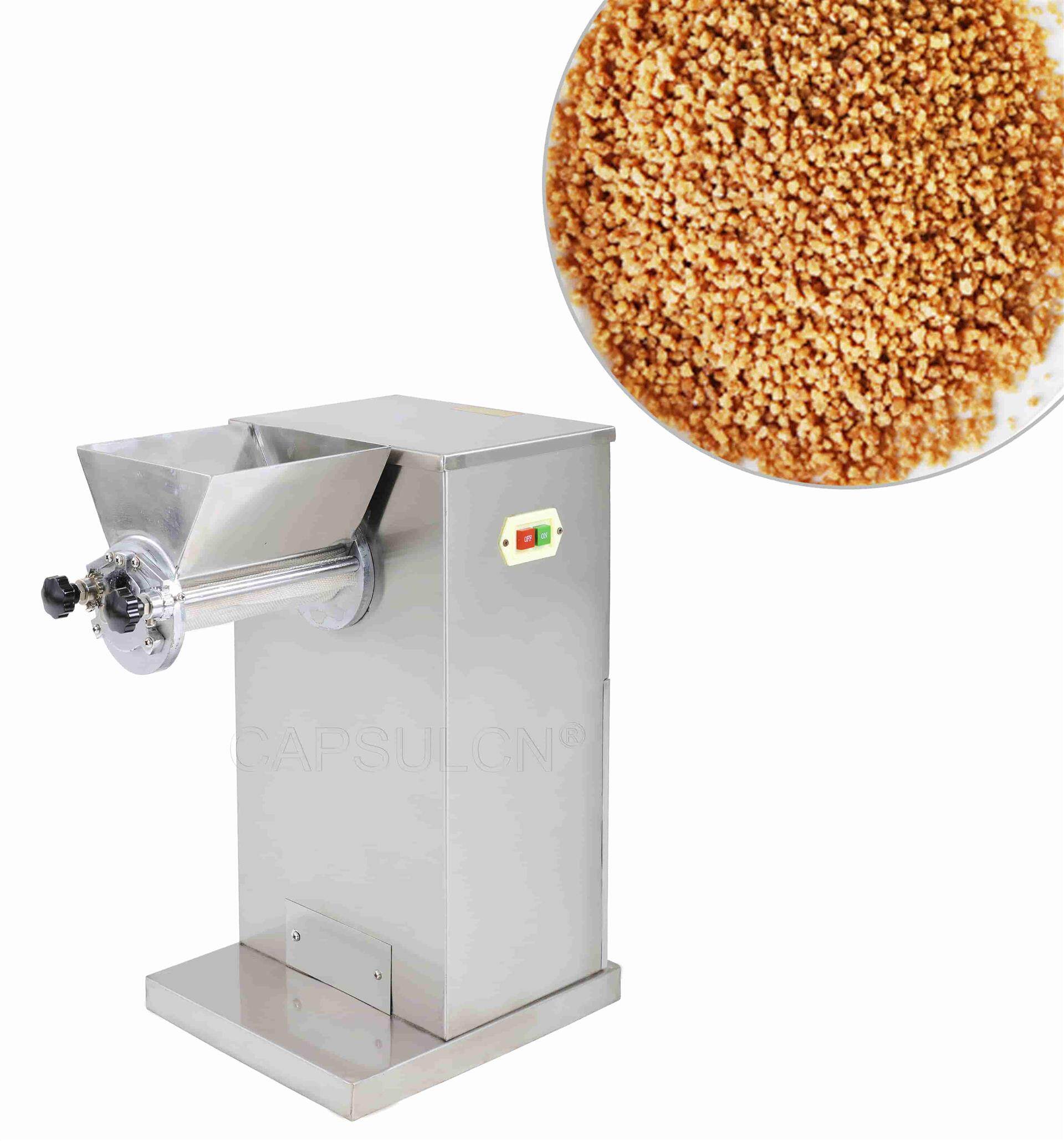
In this machine, a vibrating mechanism plays a vital role. The machine mainly use it to complete granulation. Its working principle is similar to oscillating granulators. But instead of rotating to break down particles, it uses vibration. The vibration, combined with mechanical force, causes materials to aggregate into the desired size granules. The intensity of the vibration can be adjusted to suit different materials for granulation.
Vibrating granulators are particularly suitable for materials that require gentle processing. For example, materials are heat-sensitive or moisture-sensitive. If you use this machine, the vibration process minimizes heat generation and degradation risks.
This machine is widely used to granulate APIs and excipients in medicine making industry. It can be also applied to food additives, spices, and chemical powders, etc. If you are interested in vibrating granulators, our CYK series are good choices. You can check their working principle in deatil through the video as follows.
Fluid Bed Granulator
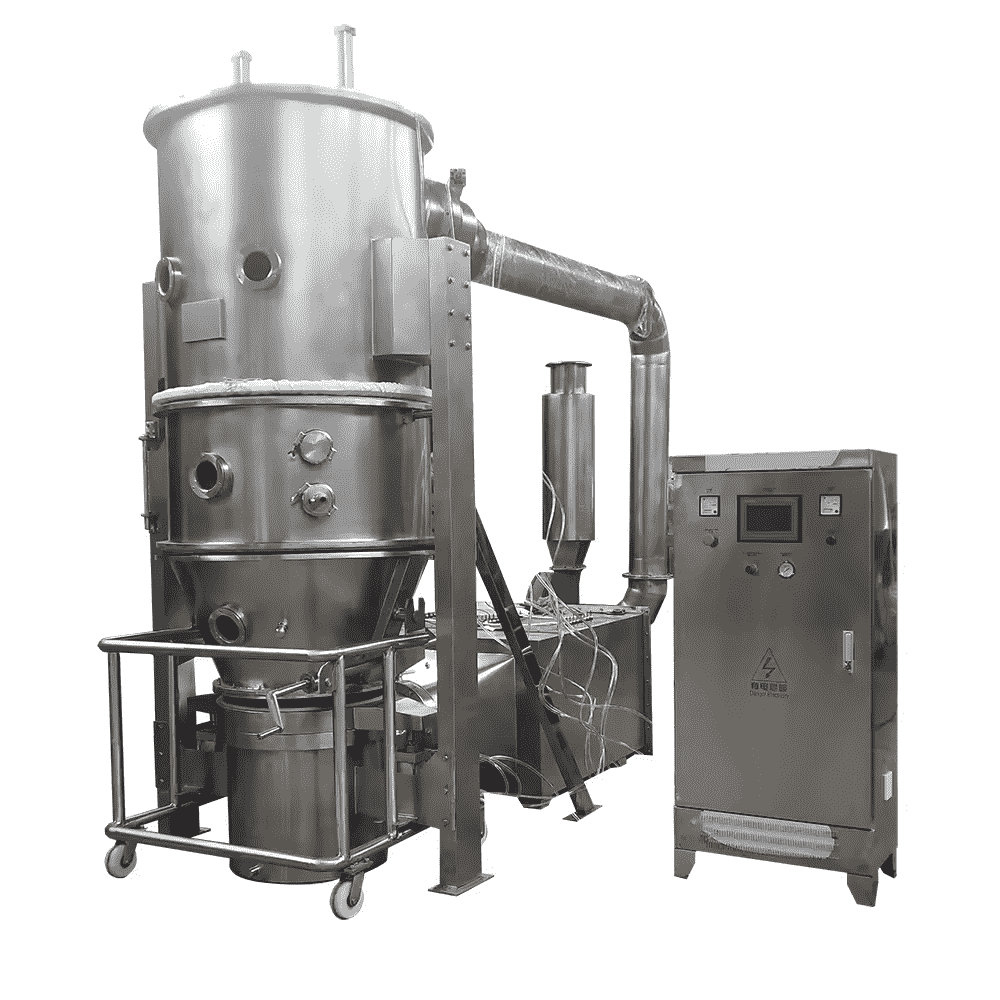
This machine has a totally different working principle from others. It suspends powder in an upward-flowing stream of air. Then it creates a fluidized state. In this state, the particles behave like a fluid. This helps evenly distribute heat and moisture during the granulation process. Then a granulating fluid is sprayed onto the fluidized particles. It is typically a binder solution. Next, the fluidized particles interact with the binder. This makes the them to stick together and form granules. As the granules are formed, they need to be dried for further processing.
Fluid bed granulators are preferred by high efficiency. It also excels in producing granules with excellent uniformity and flow properties. If you require a precise particle size and moisture content, this machine is a good choice.
How to Choose a Good Granulator?
You need to consider some necessary factors when choosing a good granulator. So the equipment's capabilities can match with your specific needs and application requirements. Your production then can be ensured smooth and high efficiency. Here are key considerations you need to know.
Production Purposes
The choice is highly related to what you want to make. For example, in the pharmaceutical industry, different types of medicines need different granulators. To make tablet granules, you might need a high-shear granulator. It can ensure the granules are even and compressible.
Also, pay attention to the size before and after granulation. The granulator must handle the input size and produce the desired output size. If you cannot find a granulator that makes the size you need, you can customize parts like screens.
Material Properties
Different materials require different granulators to get the job done. Each material has specific features. They include fluidity, hardness, brittleness, moisture content, etc. These features affect which granulator you should choose. You should also check if your material is very sensitive to humidity. If it is, you’d better choose a dry granulator.
Operational Factors
If you want to buy a good granulator, you need to consider its power consumption, noise level, and ease of maintenance. This helps you understand the machine's power needs and efficiency. And you can check whether it can be used for a long time.
You should compare several machines and suppliers to find the one that best meets your needs. Please note that the supplier you choose should offer good after-sale service. This way, if you have problems after buying, they can help you fix them quickly.
Get a High-Quality Granulator with iPharMachine
There are many types of granulators to choose from. You should consider your purposes and materials to choose the best one. It is important for a better pharmaceutical production. If you are a newbie and don’t know how to select, contact us now. We help you find the most suitable one based on your needs.
Leave your comment
Also Offers
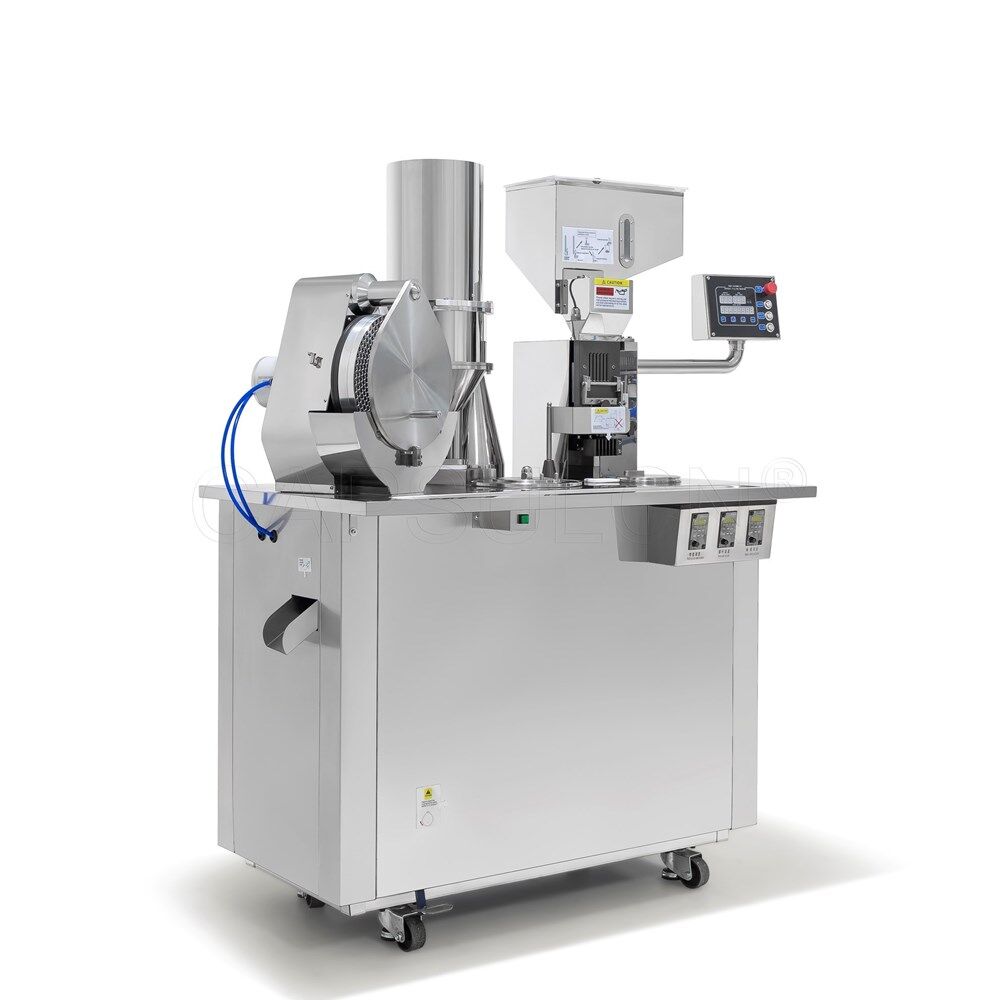
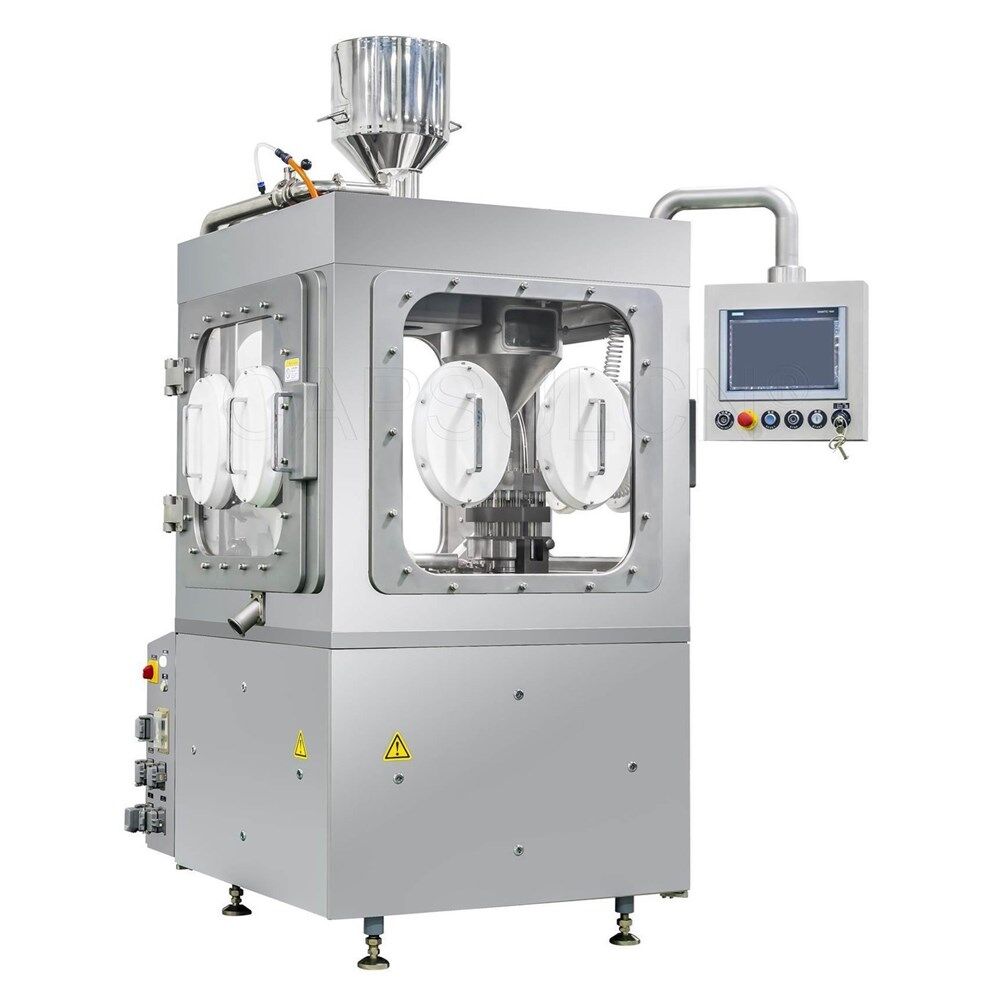
Containment Automatic Capsule Filling Machine SFK-703
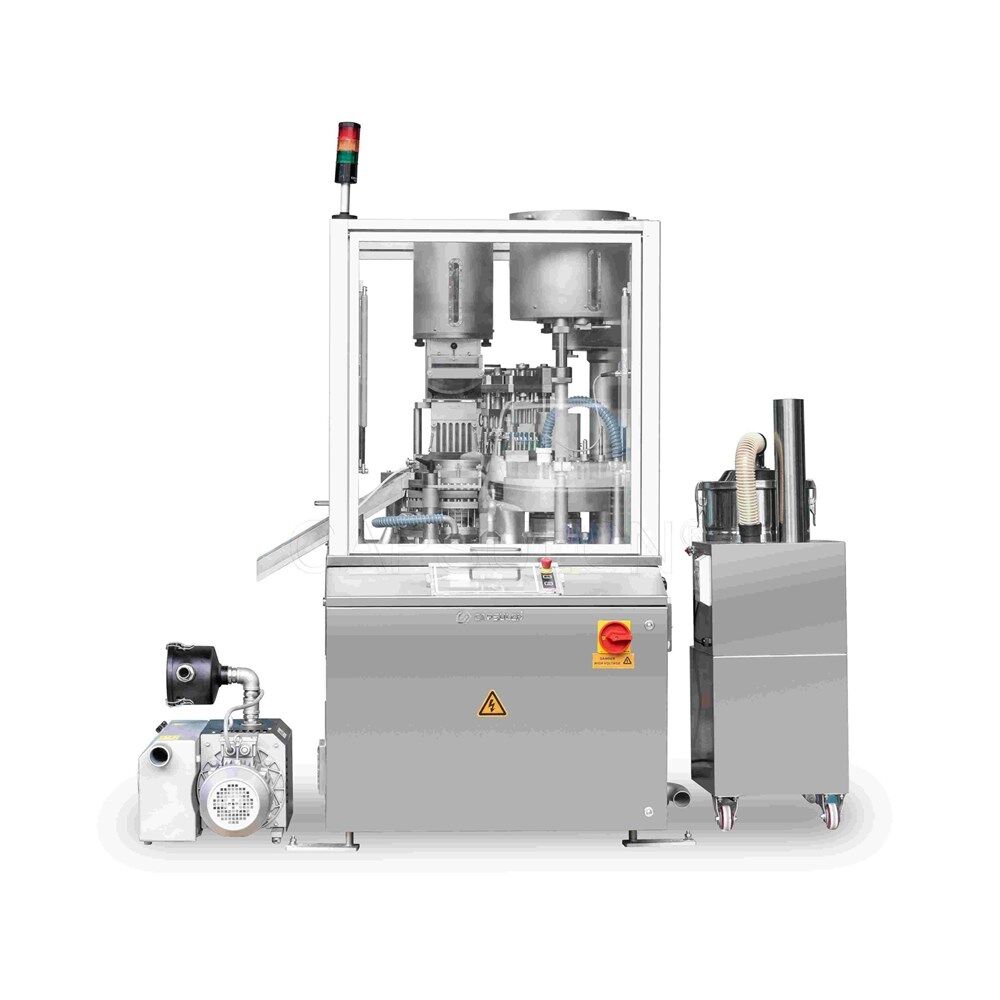
Fully Automatic Dosator Capsule Filling Machine CZ-40

Our Team
As an expert in the pharmaceutical and pharmaceutical packaging industry, iPharMachine has provided solutions for hundreds of pharmaceutical and health product manufacturers for 17 years. By visiting customers, we get good reviews from our customers.
- info@ipharmachine.com
- English Español Deutsche
